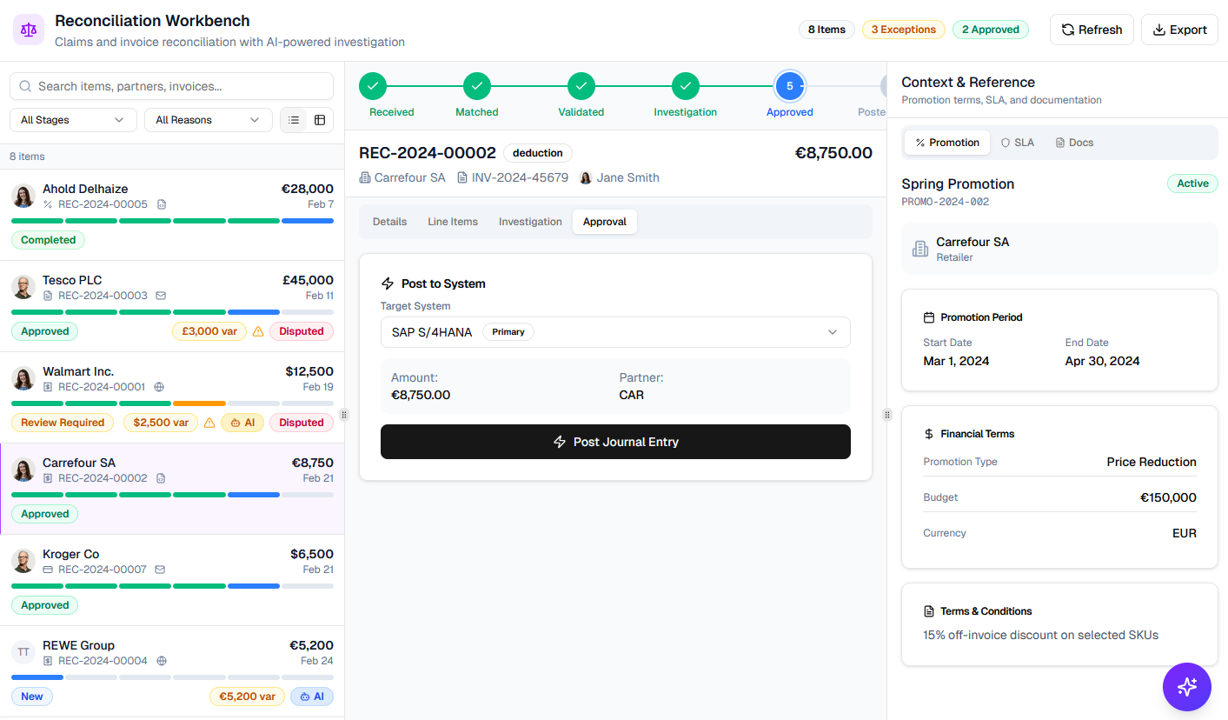How Does Business Process Automation Work?
Business process automation works by integrating various software applications to perform tasks that would otherwise require manual intervention. This can include anything from data entry to customer service interactions.
Most platforms have a no-code or low-code environment in which users can replicate their process workflows digitally and automate them end-to-end. Oftentimes, the digital workflow will include other automation solutions such as AI-image recognition (e.g., for reading invoice PDFs) or machine learning (e.g., for matching unstructured data).
Advanced tools like Transformance go beyond simple integrations to apply AI and machine learning, cleverly inserting business logic into processes at scale. Its latest feature allows users to prompt an AI agent to generate process steps and entire workflows without requiring coding expertise or extensive data analytics skills.
The Benefits of Business Process Automation
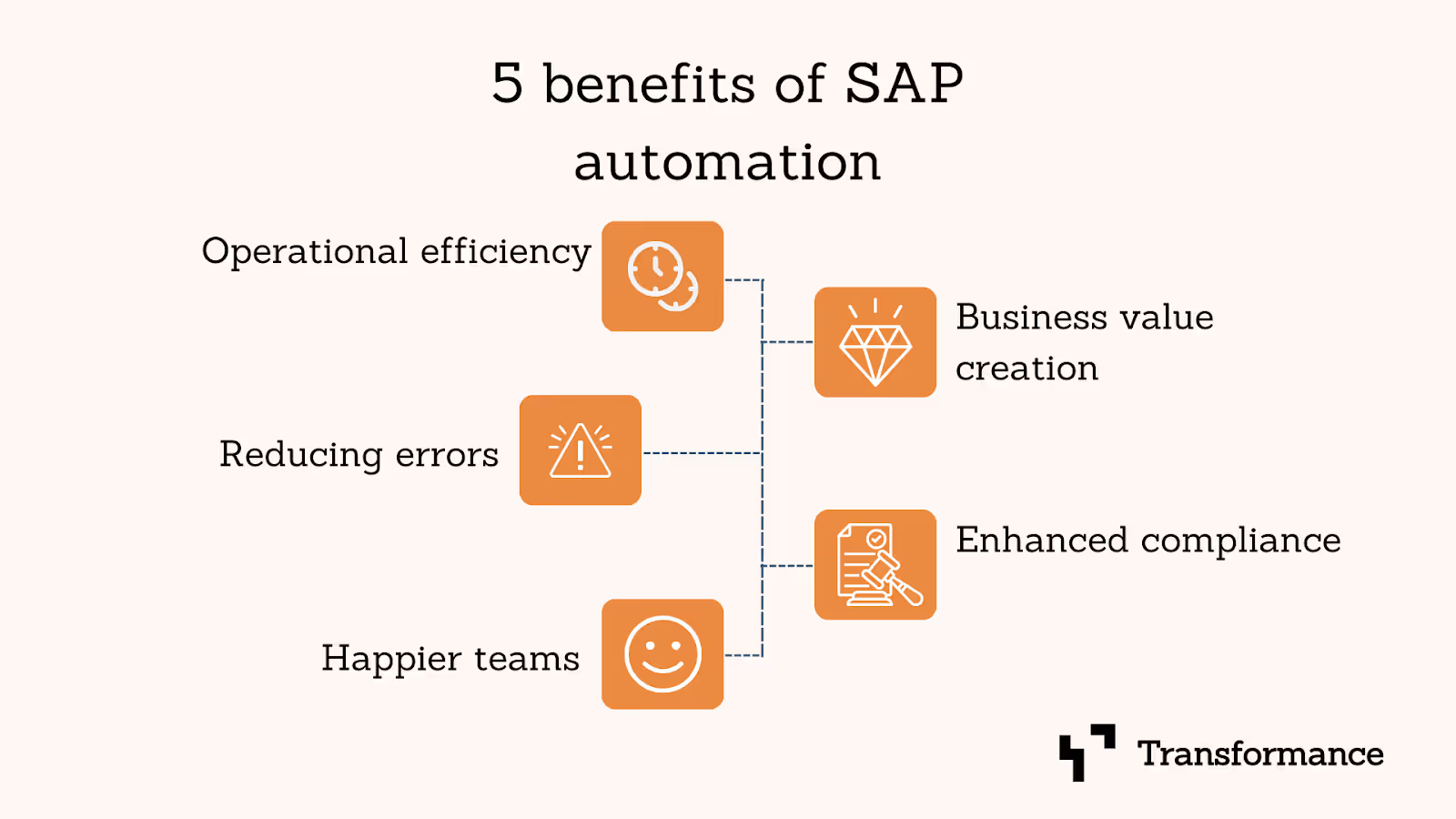
As we discussed in the introduction, business process automation is an important emerging trend that more and more enterprises adopt. Here are the five major reasons why businesses adopt process automation tools and why you should consider doing the same.
1. Increase Operational Efficiency
Process automation enables teams to streamline their processes by automating repetitive tasks while reducing manual effort and errors. This results in faster turnaround times for all team projects and ongoing to-dos. The more a process is automated and standardized, the faster high-quality information and data can flow through the enterprise. A study by Gartner reports that automation could save up to 30% of a full-time employee’s time in the finance department. This equates to 25,000 hours annually, potentially saving $878,000 for an organization with 40 full-time accounting staff.
2. Create Business Value
One of the most significant benefits of process automation is its ability to free up valuable human resources. By automating routine tasks, teams can reduce the time spent on repetitive tasks and redirect their efforts toward more strategic initiatives, fostering innovation and driving growth.
McKinsey’s research found that automation and AI will significantly reduce the time spent on basic cognitive skills like data input and processing, allowing employees to focus more on complex, creative, and critical decision-making activities.
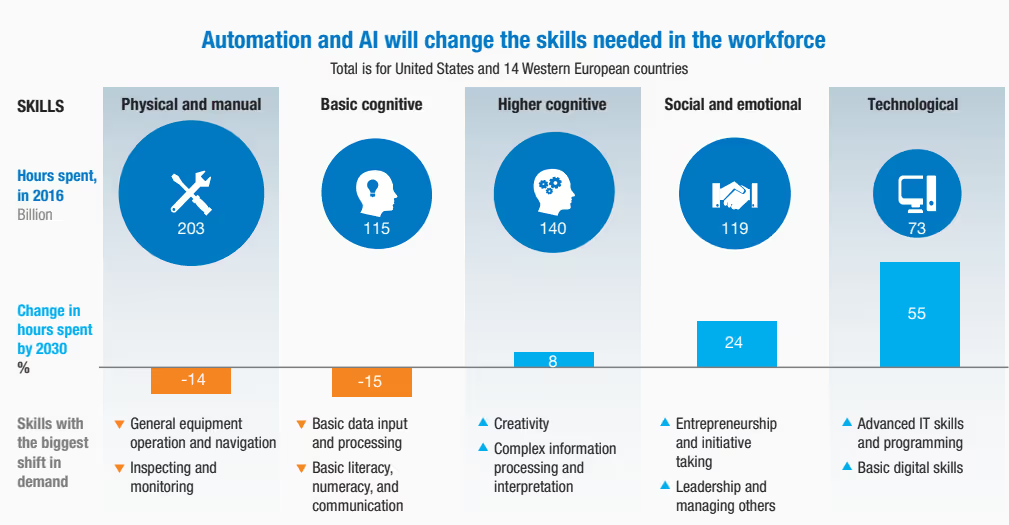
3. Reduce Errors and Improve Data Consistency
Be it in HR timesheet postings or finance master data, process automation helps maintain better data quality throughout your enterprise. By eliminating human error, automation tools enhance data quality and ensure faster access to consistent, accurate information.
4. Enhance Compliance and Risk Management
Compliance and risk management are critical for enterprises. Automating repetitive tasks and ensuring fast, consistent data flows improve compliance and reduce risks such as data breaches or inconsistent audit trails. Automation is especially valuable in finance, HR, and procurement processes, where precise data handling is paramount.
5. Create Happier Teams
Smoother processes and reduced dependency on complicated VBA or Excel models lead to happier teams. A 2021 Salesforce survey found that 89% of employees were more satisfied with their jobs due to workplace automation. Employees appreciated the efficiency and support these tools brought to their workflows.
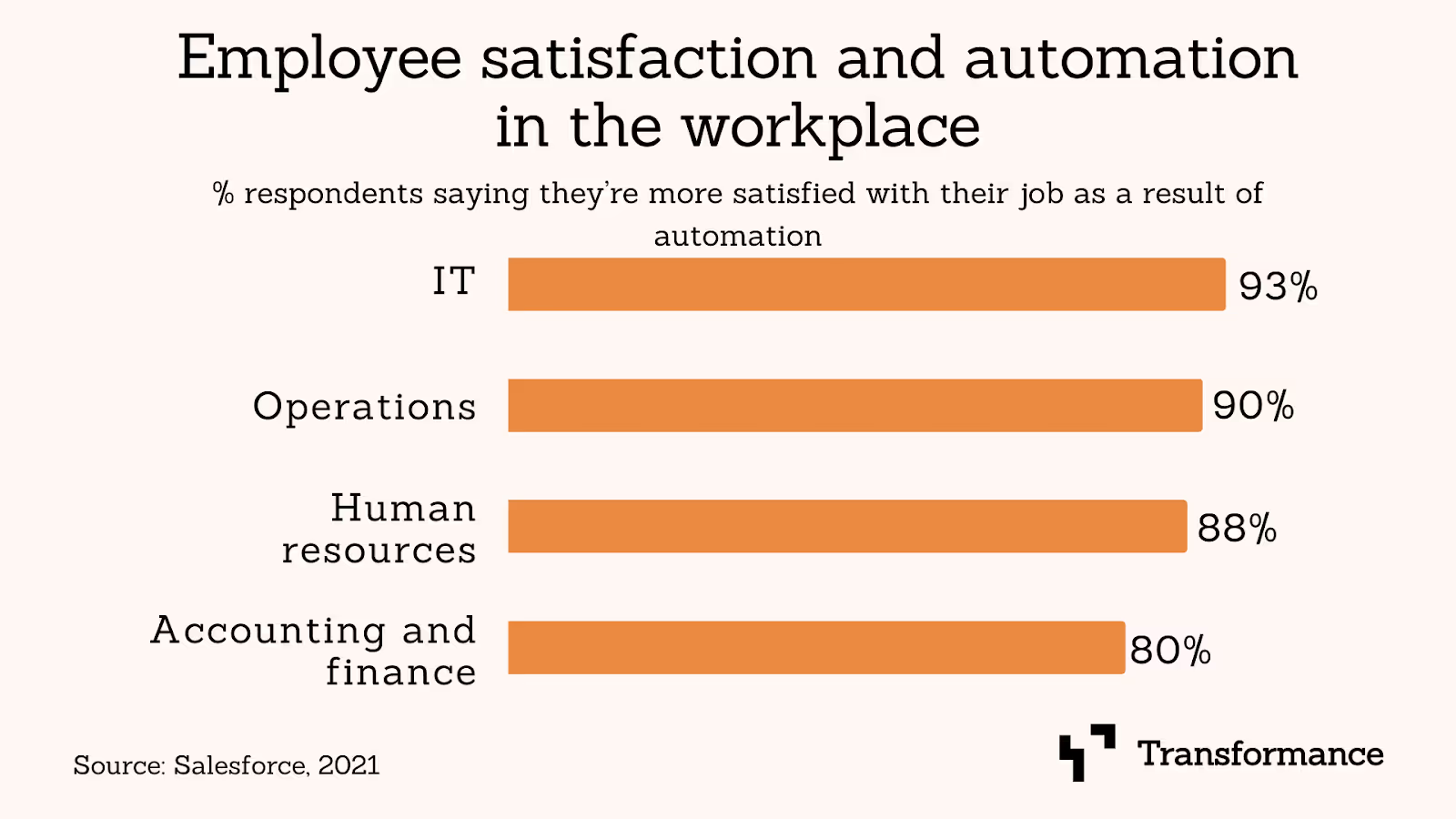
The Top Business Process Automation Tools
Transformance: The Most Powerful AI-Native Solution
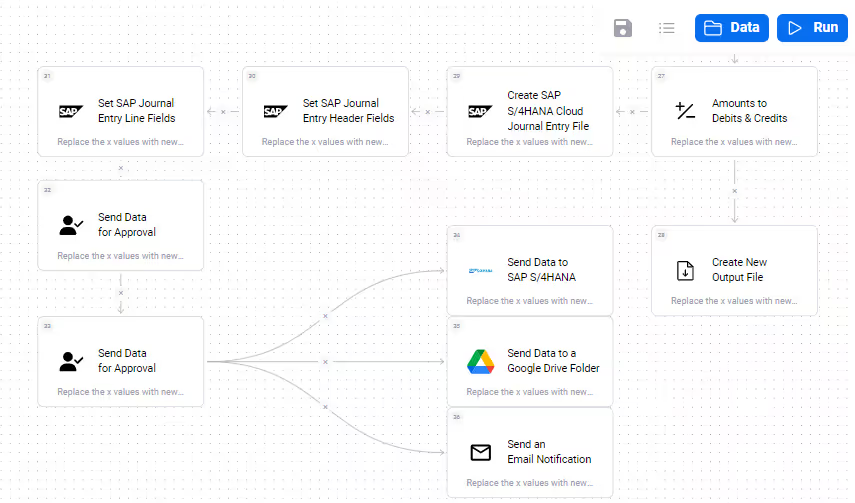
Transformance is an AI-native, no-code workflow automation platform and builder. It excels in integrating complex processes for large enterprises. Transformance’s user-friendly interface empowers business users to automate tasks without relying on developers. Its cutting-edge AI capabilities create workflows, transformations, and business apps at scale using simple prompts, streamlining processes like never before.
Pros:
- Advanced AI-native functionality
- No-code platform
- Enterprise-grade capabilities
- Seamless SAP integration
Cons:
- Limited community support as a newer player
Price: From $299/month per admin user and $29/month per business user.
UiPath: The Best RPA Solution
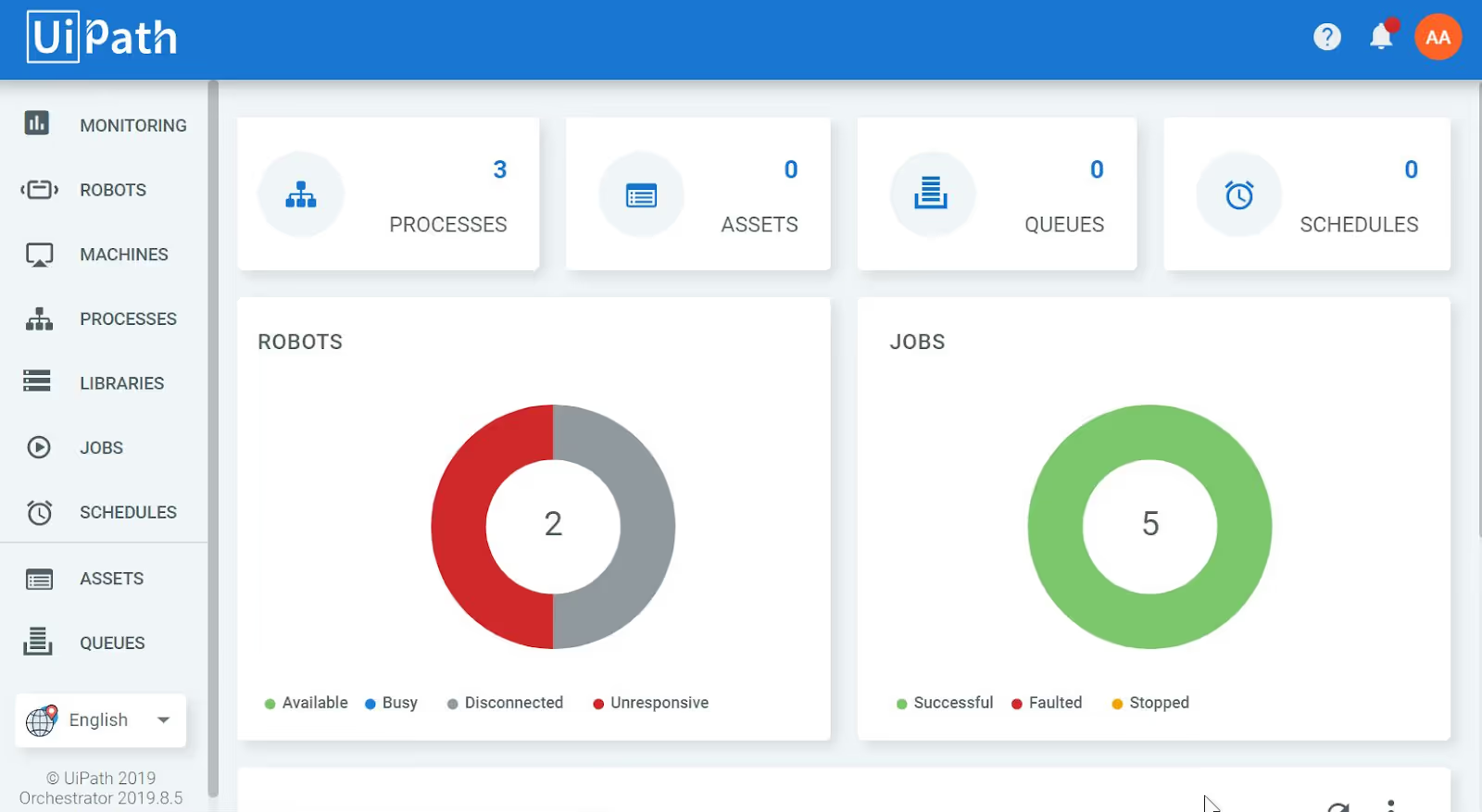
UiPath is the gold standard for RPA. It allows businesses to automate processes across SAP and non-SAP systems. With UiPath, you can create user automations that handle data extraction and other repetitive tasks while improving overall efficiency.
Pros:
- Extensive library of pre-built activities
- Strong SAP integration capabilities
Cons:
- Requires a learning curve for complex scenarios
Price: Starting at $420/month for the pro plan.
Zapier: The Best for Simple Processes
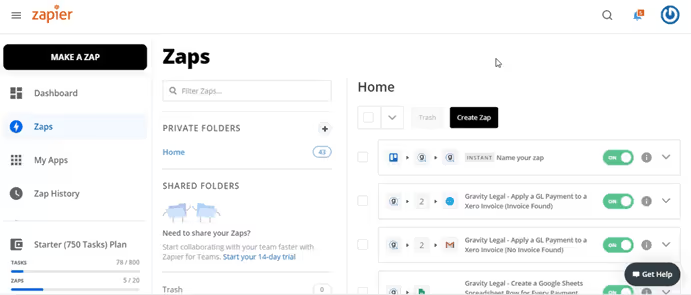
Zapier is the most used connector app, linking over 2,000 apps. It’s perfect for automating simple, repetitive tasks, such as data transfers between two different platforms.
Pros:
- Ideal for small businesses
- Wide app ecosystem
Cons:
- Limited customization for complex workflows
Price: Starting at $19/month per user for Pro plan.
Power Automate (formerly Microsoft Flow): the Windows-native solution
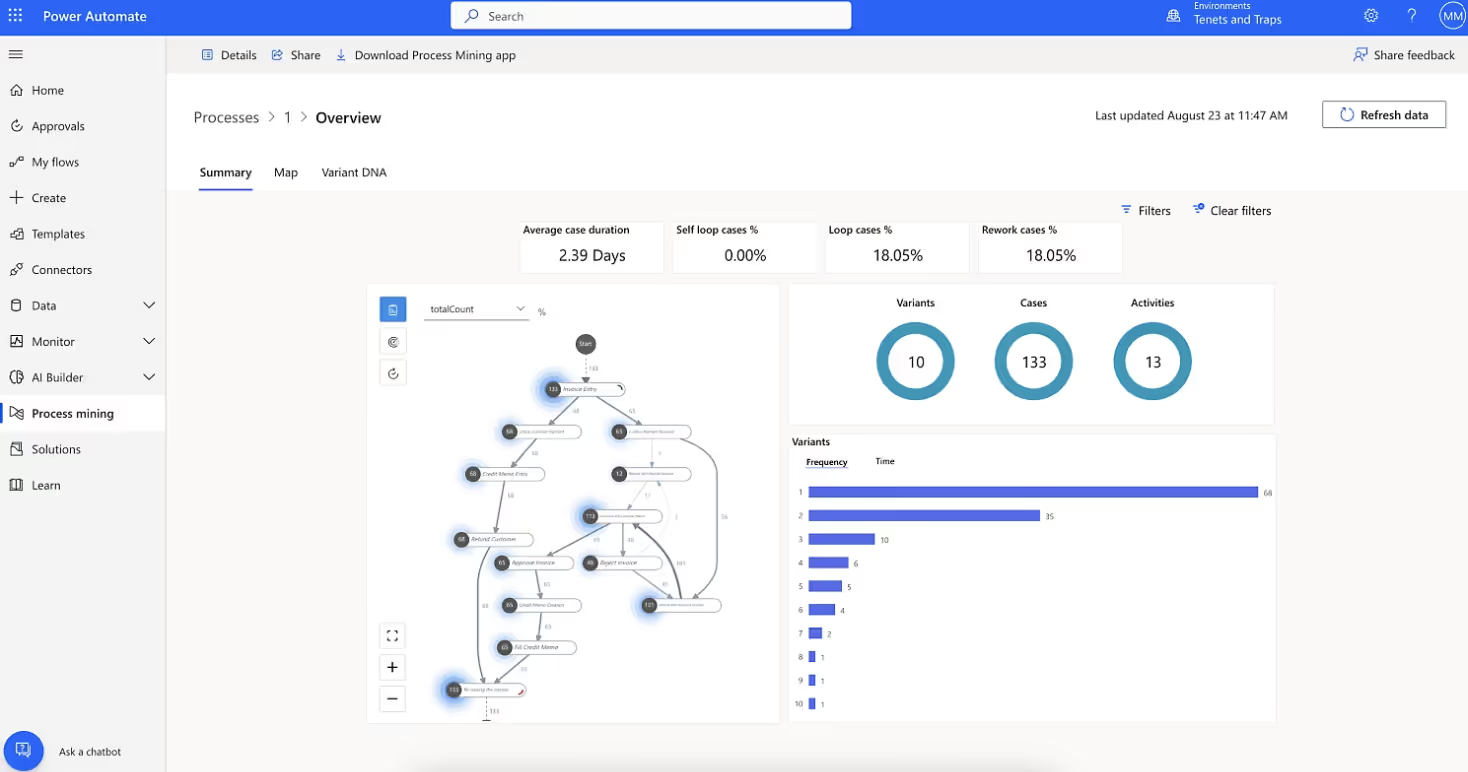
Power Automate offers robust automation features integrated with Windows Desktop applications, allowing users to create automated workflows, approvals, and notifications.
Pros:
- Tight integration with Microsoft products
Cons:
- Limited support for Mac users
Price: Starting at $15/month per user.
Nintex: The Generalist Player
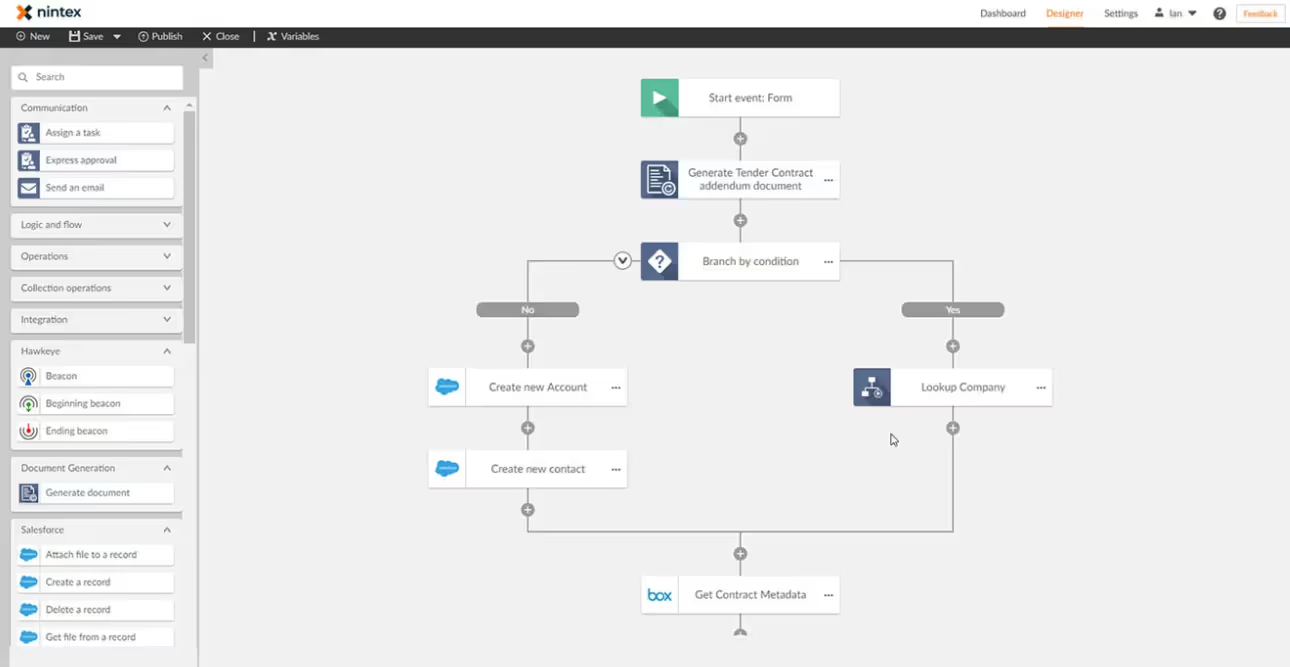
Nintex provides workflow automation solutions for enterprise apps like SharePoint, Office 365, and SAP. Its visual designer simplifies process automation, making it accessible to both technical and non-technical users.
Pros:
- Core product requires no IT or coding expertise
- Comprehensive builder for data & process interfaces
Cons:
- Not many SAP-native automations, requires third-party cloud connector to include SAP processes
- Limited number of connectors & integrations
Price: Starting from $25,000/year.
Workato: The Enterprise iPaaS
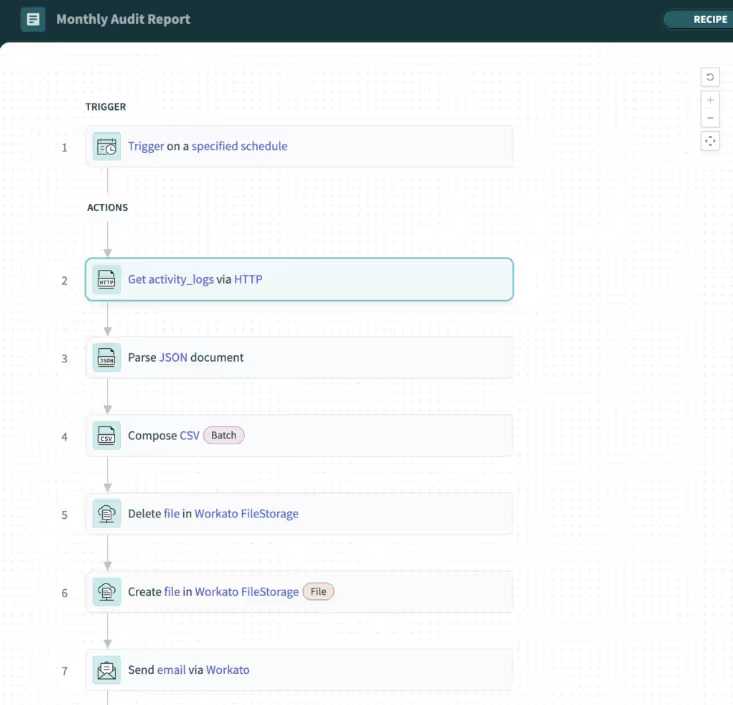
Workato specializes in intelligent integration and workflow automation. It connects cloud apps, databases, and APIs, allowing users to create complex workflows without coding.
Pros:
- Versatile platform for various use cases
- Real-time data synchronization
- Robust error handling
Cons:
- Pricing can be high for enterprise features
- Limited AI functionality
Price: Starting at approximately $10,000-17,500 per year.
SAP Business Technology Platform (SAP BTP): The SAP-Native Solution
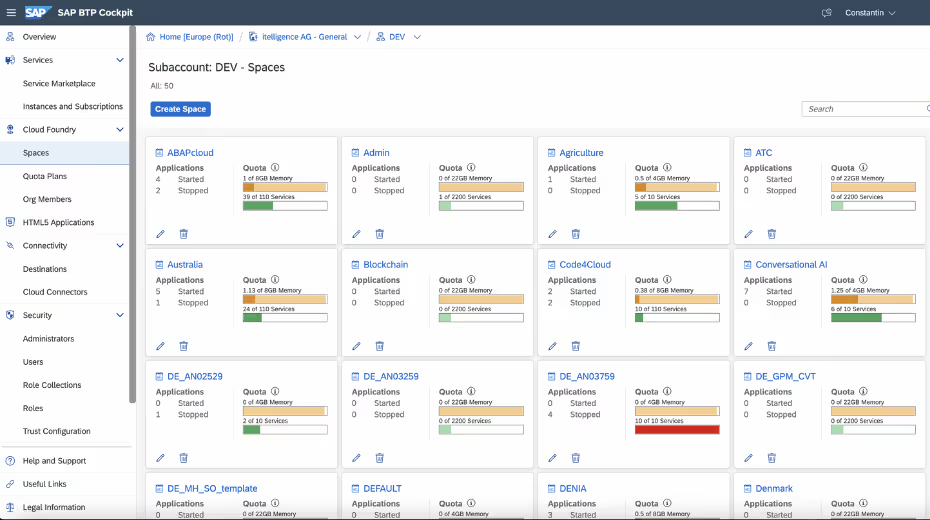
The SAP Business Technology Platform (SAP BTP) is a unified environment that integrates application development, automation, data management, analytics, and AI, optimized for SAP cloud applications. It enables development and deployment of business applications for SAP and supports integration with SAP and third-party systems.
Pros:
- SAP-native integration
- Scalable and secure
- Extensive documentation and support
Cons:
- Limited integration with third-party apps
- Challenging learning curve for non-technical users
- High price tag at scale
Price: $10,852/year for enterprise agreement. Free trial and pay-as-you-go options available for pilots.
Appian: A Low-Code Option for Complex Processes
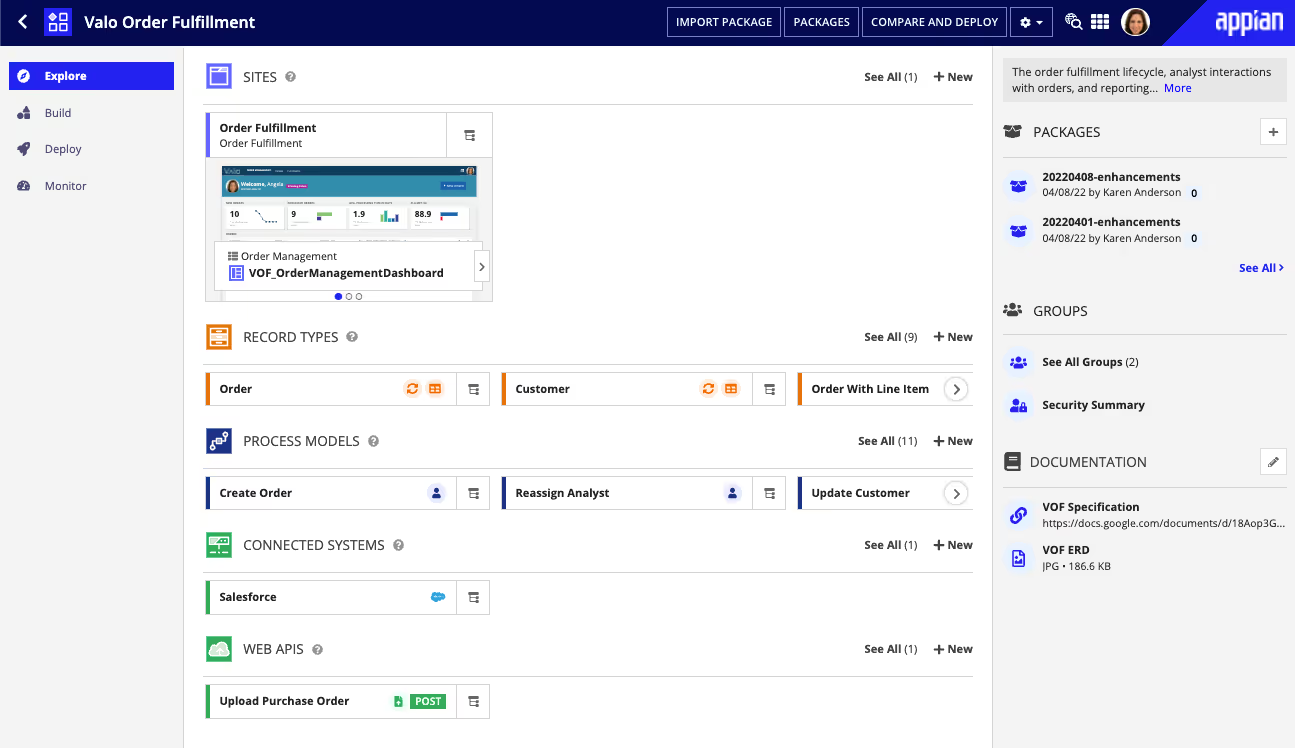
Appian combines low-code development with business process management, enabling organizations to build custom workflows and applications quickly. It is especially suited for enterprises dealing with highly regulated industries or complex workflows.
Pros:
- Strong compliance and security features
- Combines low-code and BPM for advanced functionality
- Excellent for regulated industries
Cons:
- Steeper learning curve for non-technical users
- High initial cost for enterprise adoption
Price: Starting from $75 per user/month.
Conclusion: The Best Process Automation Tool
Business process automation is a powerful tool for companies to improve efficiency, create business value, reduce errors, enhance compliance, and foster happier teams. Transformance stands out as the most powerful AI-native solution, offering enterprise-grade capabilities with cutting-edge AI features to accelerate workflows and processes. Get started with Transformance by booking a free BPA consultation today.




